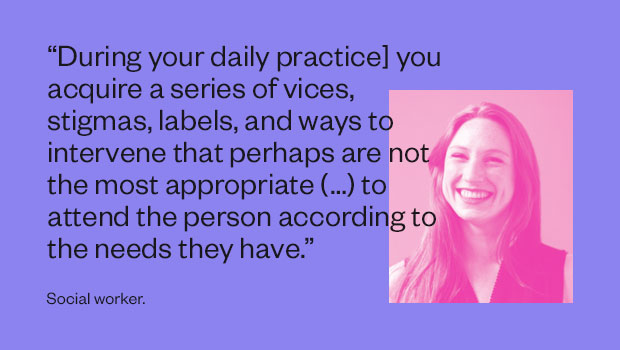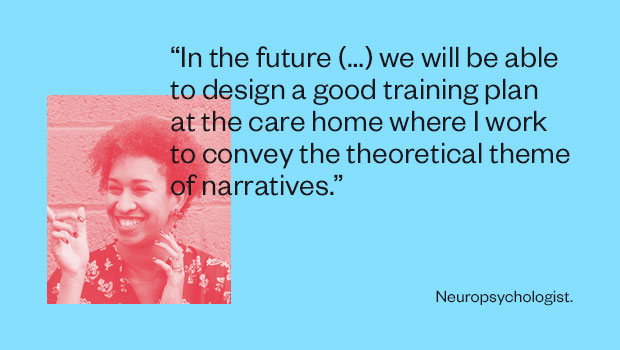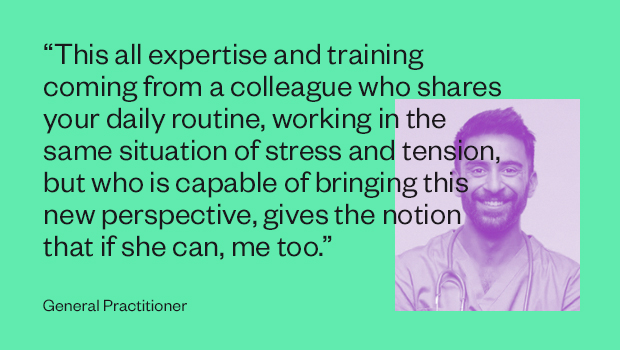
The importance of stories in healthcare
Stories are a valuable way of supporting person-centred care. The World Health Organisation refers to person-centred care as a model whereby individuals, families and communities are served by, and able to participate in, trusted health systems that respond to their needs in humane and holistic ways. This requires understanding patients and engaging in their decision-making, so as to promote caring practices. How can stories help us to do this and what do we mean by stories?
Through stories an individual relays an experience or event in time, in such a way that their values, priorities and expectations are revealed. A story is not just an objective list of facts ? nor is it just fiction - rather it is a subjective description that organizes life experiences so they are given meaning. In telling a story we choose what to say, and how to say it, depending on the situation and audience. We make sense of the variety of experiences we have every day by storying them, by giving them coherence, establishing connections between these experiences. Stories can be complex and multi-faceted as a result. Sometimes it doesn?t make sense to tell completely coherent stories and so they can be contradictory and confused, relaying when it can be hard to integrate difficult or complex life events and feelings. Stories can be particularly powerful in this regard, revealing these underlying tensions or conflicts. Stories are also told to someone and in this sense they are also shaped by the relationship of the teller to the audience.
In healthcare, stories can complement the medical model of diagnosis and treatment and communicate feelings about the lived experience of illness and care. This is important because we all experience life from our own perspective, which shapes how we interpret and understand events.
We could say that stories are a way that others can access a more holistic and subjective understanding of our perspective. Stories cross boundaries and so they can reveal how patients link together aspects of health, healthcare and well-being that professional roles and institutions may separate. This holistic aspect of stories can support the development of skills that help us to think across boundaries and professional bodies of knowledge.
Listening to stories with attention can therefore help healthcare professionals to adopt others? points of view, deepening empathy for others. But this kind of attention can be very hard to foster in an environment of restricted time and prescribed procedures. Tools that are developed through the interpretation of stories can help healthcare practitioners in these challenging situations. Listening to and attending to stories will help healthcare professionals to integrate the priorities and capabilities of seniors into their practice by better understanding how lifestyle and medical interventions both positively and negatively affect patients? desires, choices and therefore well-being.
Stories can be interpreted in different ways, depending on when and where the story is told and who is doing the listening. We each bring our own personal experiences and perspective to the stories we hear. We can learn much from considering that these differing interpretations arise and how. This enables us to listen better, so that we can best discern what are the important aspects for the storyteller, opening up communication. We draw on stories in many formats in our training ? written, audio, and some digital stories, which include pictures and music chosen by the story-tellers too. In the design of our training we have drawn on learning theories that support the learning exercises incorporated into the modules.
By stories, we mean our ways of communicating events and experiences that reflect how we make sense of our lives.
Stories convey these lived experiences in that they communicate our underlying values, beliefs and desires in a way that diagnostic categories and medical data cannot.
Stories often elicit an emotional connection. This interpersonal aspect of stories moves us away from a model where healthcare practitioners are the decision makers, to a more humanistic and collaborative relationship where people in need of care are recognised as resourceful and where their own lived experiences are considered important.
What we call story-based learning is a process of dialogue and reflection about stories that foregrounds listening and empathy.
Caringstories is the training platform that we have developed based on this research and pedagogy, wherein you will find a unique learning framework based on the power of stories.




